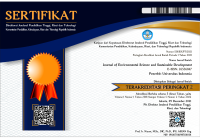Abstract
This study examined contemporary waste management systems in the Kathmandu Valley, Nepal. Many waste management projects have been launched in Nepal since the 1980s. Recent projects have targeted citizens’ awareness. Governments and international donor agencies have reported that awareness of waste management has not yet been achieved. Previous studies have discussed the failures of waste management in Nepal, while others have pointed out the negative impacts of waste management projects on the local community. In this paper, an alternative framework for understanding the waste issue from an anthropological perspective is provided through a case study. Specific attention was paid to how and by whom waste is managed, and how all actors interact to develop a waste management system in the Kathmandu Valley. In this study, ethnographical research methods were employed. This study revealed that, despite government claims to the contrary, people were already aware of waste problems. Activities of those who were “aware” of the waste problems did not properly correspond with the proposed waste management projects. People developed waste management businesses by themselves. In addition, the practical waste management system in Nepal is much more complicated and informal than government and donor agency’s expectations. Practically, waste management in the Kathmandu Valley was accomplished through a multi-faceted development of a complicated and fragile system. The system is not perfect, but it functions as an effective polycentric system
Recommended Citation
Ito, Sanae
(2019).
A POLYCENTRIC WASTE MANAGEMENT SYSTEM IN THE KATHMANDU VALLEY, NEPAL.
Journal of Environmental Science and Sustainable Development, 2(1), 61-74.
Available at: https://doi.org/10.7454/jessd.v2i1.30






